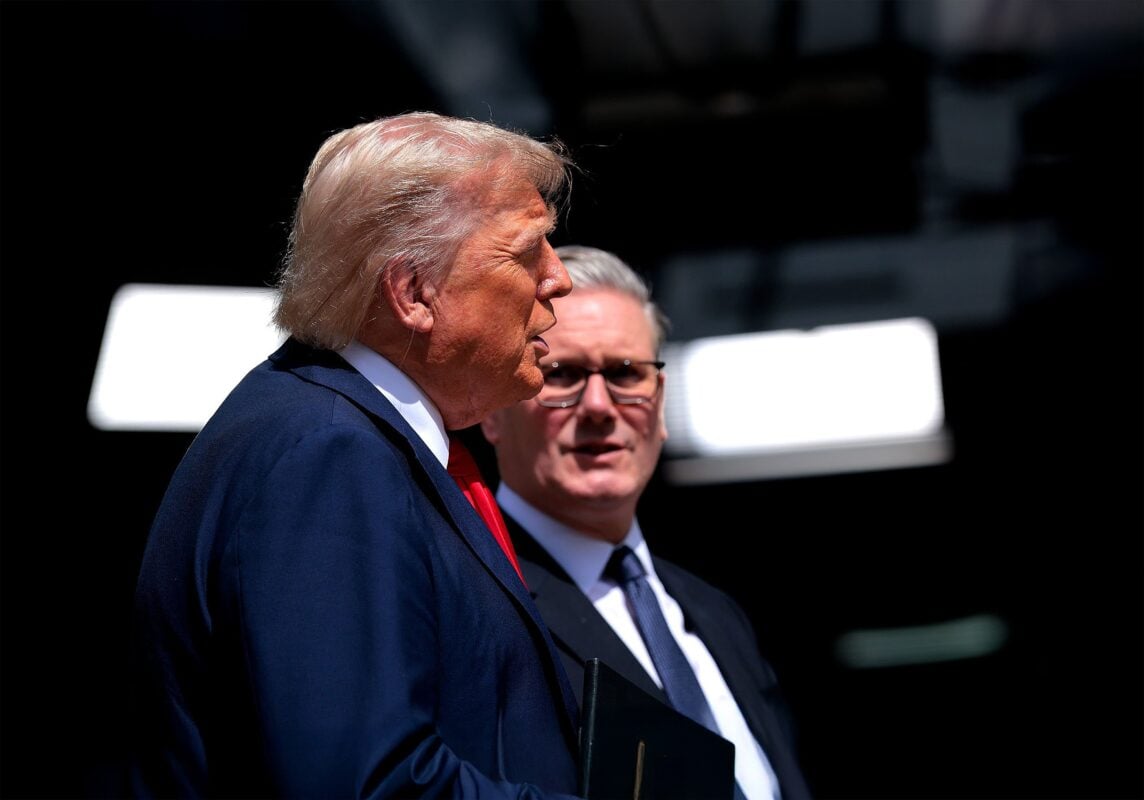TLDRs;
- Trump warns AI is “taking over” during U.K. state visit with Prime Minister Keir Starmer and tech leaders.
- U.S. and U.K. sign “Tech Prosperity Deal” to expand AI, quantum computing, and nuclear cooperation.
- Nvidia announces largest European GPU rollout with 120,000 units to power Britain’s AI growth.
- Trump leans on Big Tech to expand AI education in U.S. schools, citing need for global competitiveness.
During his state visit to Britain on September 18, U.S. President Donald Trump bluntly warned that artificial intelligence is “taking over the world.”
Speaking alongside U.K. Prime Minister Keir Starmer, Trump urged top technology executives, including Nvidia CEO Jensen Huang, to ensure AI remains a force for good. The high-profile event, which blended diplomatic ceremony with big-ticket tech announcements, underscored both nations’ urgency in shaping the future of artificial intelligence.
The occasion marked more than rhetoric. Trump and Starmer formally signed a “Tech Prosperity Deal”, pledging to deepen collaboration between government, academia, and private industry. The agreement will prioritize AI models in healthcare, accelerate quantum computing research, and modernize civil nuclear projects.
Nvidia Leads With Massive GPU Rollout
One of the most striking elements of the partnership was Nvidia’s announcement that it would deploy 120,000 graphics processing units across Britain, its largest European rollout to date.
The move cements Britain as a key hub for AI infrastructure, aligning with Starmer’s commitment to make the U.K. a global leader in digital innovation.
For Trump, Nvidia’s investment validates his long-standing argument that private-sector muscle is vital for ensuring Western dominance in AI.
“Tech leaders must know what they are doing,” he remarked pointedly, underscoring his belief that government oversight alone cannot guide AI’s explosive growth.
Big Tech and the Future of AI Education
Back in Washington, Trump is extending that same philosophy to education. His AI Action Plan tasks America’s largest technology companies with building an “AI-ready workforce,” reflecting concerns that U.S. schools are lagging behind global peers.
Google, Apple, Microsoft, Amazon, OpenAI, and Anthropic have all pledged billions in funding, tools, and training for educators and students. Initiatives include free access to AI-powered software, cloud credits for schools, nationwide student competitions, and specialized training programs for teachers. The First Lady, Melania Trump, has championed the Presidential AI Challenge, a K-12 contest that invites students to develop AI-driven solutions for their communities.
These corporate commitments mirror the sense of urgency voiced in London. With China and other nations accelerating their AI ecosystems, Trump believes that outsourcing AI education to Big Tech may be America’s most pragmatic path to staying competitive.
Balancing Promise and Risk
The U.S.-U.K. pact demonstrates how AI is rapidly becoming a central pillar of geopolitics and economic growth. Yet Trump’s warning reflects the unease surrounding AI’s unchecked pace. For every promise of medical breakthroughs or smarter classrooms, there are risks of disinformation, job disruption, and security threats.
Trump’s challenge to technology leaders captures the tension perfectly. While the Tech Prosperity Deal signals optimism, it also reveals a recognition that the world is racing headfirst into uncharted territory.







